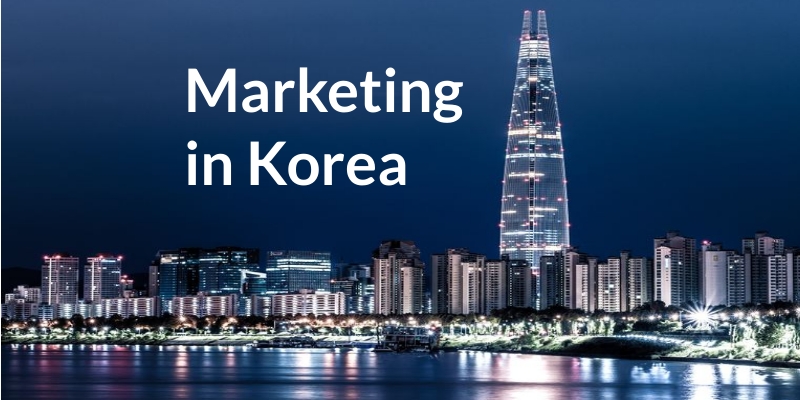
When it comes to Marketing in Korea, there are many differences, quirks, and behaviours to consider.
Korea is the most connected country in the world and is the result of strategic government policies and investment. Starting in 1995, the government initiated the Korean Information Infrastructure project. A 10-year program that started with laying internet infrastructure between government buildings and rolled out country-wide broadband by 1998. By the year 2000, South Korea had connected nearly half of its 45 million citizens. (Source IDG)
In 2018, the internet penetration rate peaked at 96%, while the internet usage rate had reached 91.6%, according to Statista. It is not just young Korean’s who are highly active online, Koreans in their 50s, 60s, and older are also connected and comfortable using online services, especially shopping. eCommerce is huge in Korea with super fast delivery and highly competitive prices driving a dynamic market.
Not Surprisingly marketing in Korea also has its specific quirks. Korea has its own search engine, blogging and advertising platform, in some ways similar to google, but at the same time very unique.
NAVER
Naver is the go-to place for information in Korea and like google this has also become a verb, “Naver it” is the war-cry of curious Korean keyboard warriors. Naver is extremely powerful in Korea and provides all the expected services such as Blogging, Map, search, and chat (via its LINE app). Line is the second most popular messaging app in Korea, with Daum Kakao’s Kakao Talk reigning supreme.
If you are launching a business in Korea then it is essential that your business can be found through a simple Naver search. SEO exists in Naver but it is “Paid Results” that take the top spot in the search results.
Naver does display organic search results, but these appear after the paid listings. Organic results often won’t be shown until page three or four of search results, so ‘pay to play’ is essential for marketing in Korea.
Naver’s CPC (Cost Per Click) platform is called Power Link and is a paid advertising system that operates with a public bidding style. Fees vary by keyword popularity and the keywords cannot be capped individually, although the total spend can be capped to allow for budgeting. You will need to pay in advance for power link campaigns.
Naver shows top 10 results for a given keyword on page 1 on PC and Top 3 results on Mobile. Bear this in mind when planning campaigns and budgets as Korea is heavily mobile-first. If you are not in the Top 3, then you risk being invisible to your potential customers.
Naver has a number of Categories that could display keyword results, Naver Cafe, Naver Blogs, Naver Encyclopedia, Naver maps, and Naver Images, but remember that Naver Organic results are shown way below any paid listing, in any category.
Another, probably obvious, point I should make clear is that Naver searches and results are in the Korean Language. So you will likely need some local assistance to get your Korean marketing machine up and running.
Marketing success in Korea takes some investment, a business registration number, and a loyal following.
The Power of Reviews
Reviews and testimonials are huge in Korea. To succeed you need to get people talking about your business… on Naver. Korean’s tend to be highly influenced by their peers and product and style trends can explode and disappear quickly, with online recommendations the driving force for propelling trends. Particularly in the food industry, the power of recommendations has resulted in many restauranteers paying for positive reviews to achieve ‘Delicious house’ (맛집 mat’chib) status. Influenced by the recommendations of other’s, restaurants with ‘맛집’ status can easily be spotted by the long queues of foodies eager to sample for themselves.
Influencers
Social media is also huge in Korea with Bloggers, YouTubers and social media influencers, posting in their thousands from, Seoul’s wonderous selection of cafe’s and restaurants. Exercise and Diet themed accounts on Instagram are also popular with Korea’s youth providing a great deal of choice for companies looking to use influencer’s to market their products.
Summary
Due to the unique social dynamics of Korean society, and the high internet penetration rate marketing in Korea is a complex beast and can be confusing and complicated to navigate alone, but the opportunity is huge.
Check out my book: Business in Korea: A guide for foreigners
